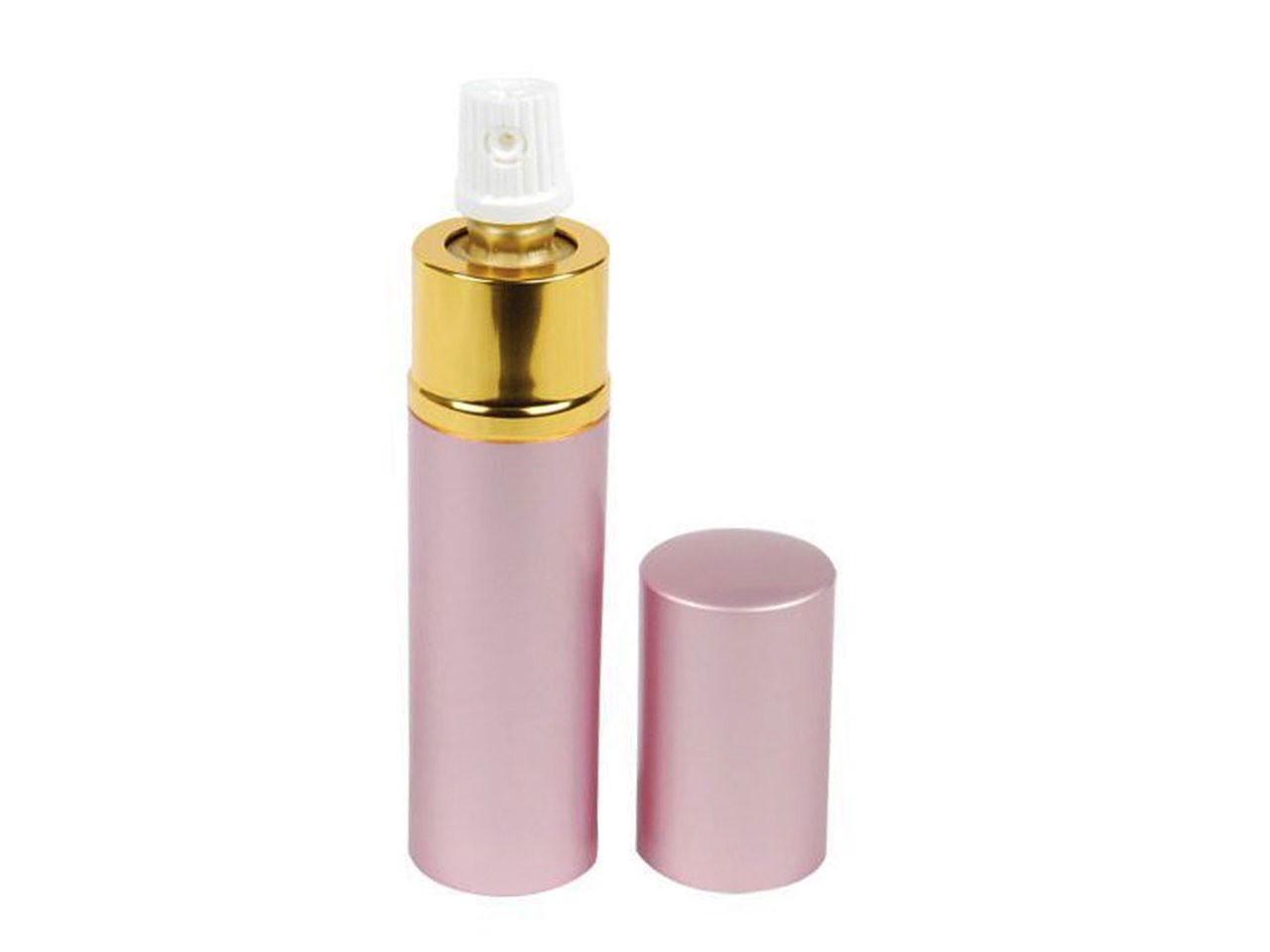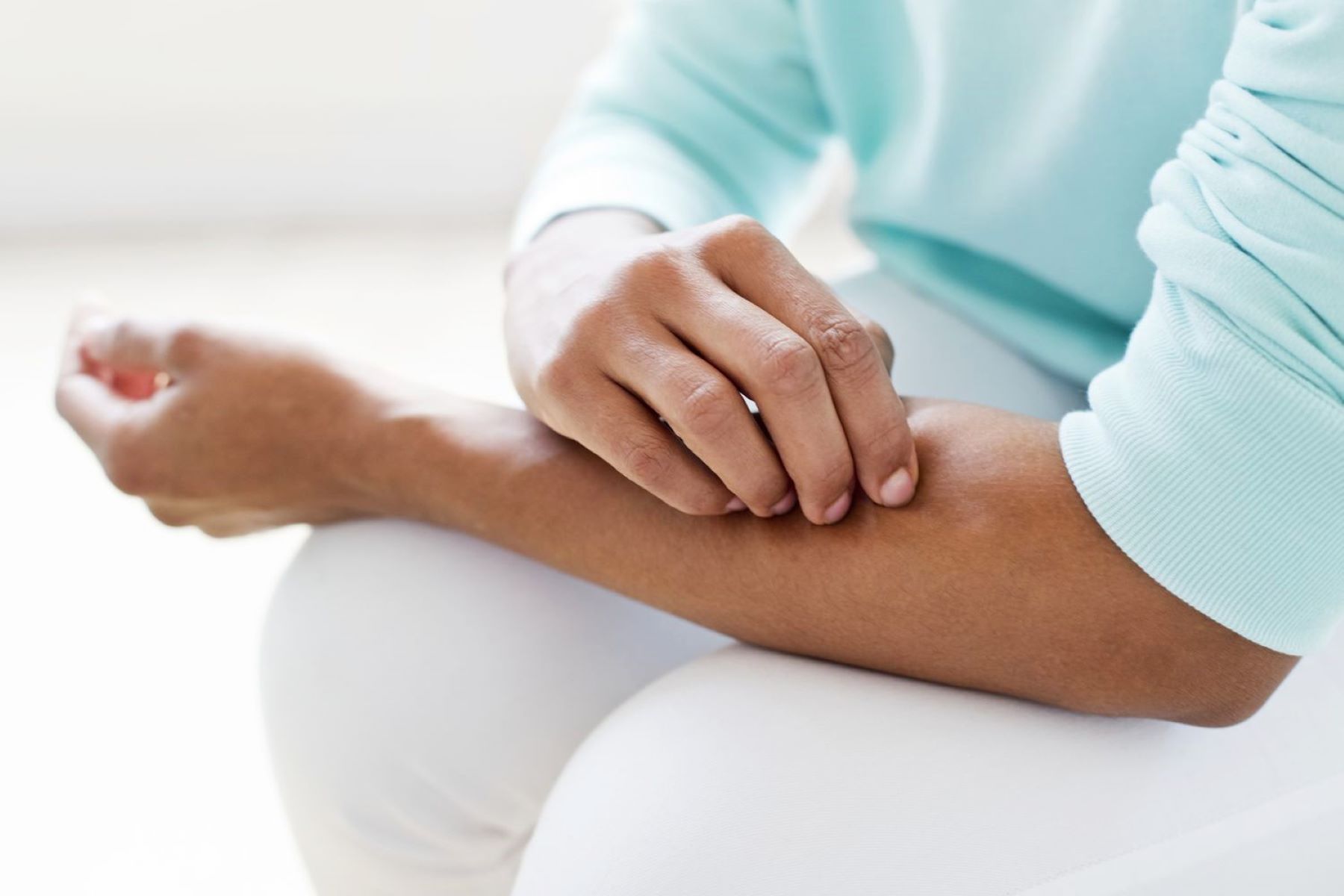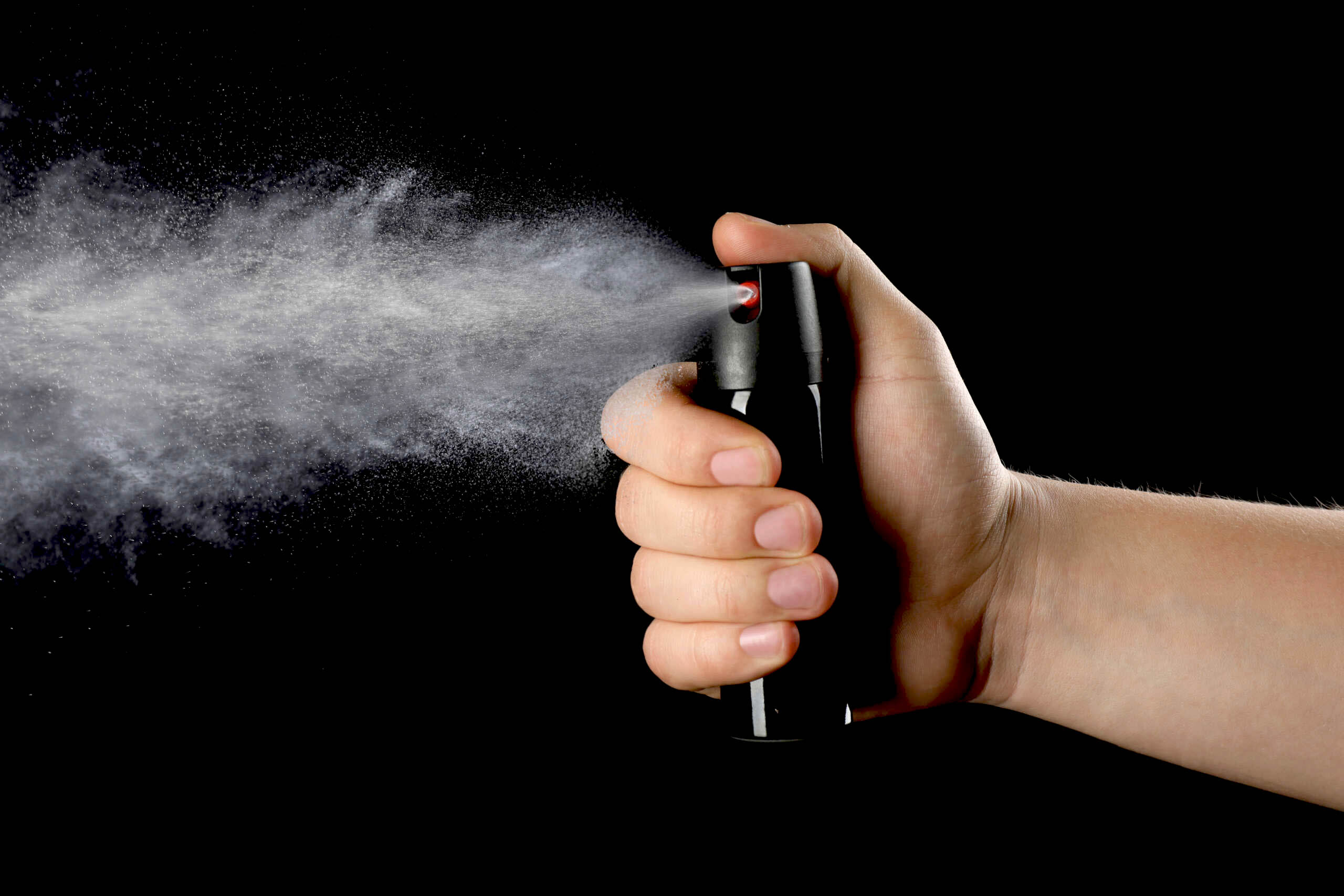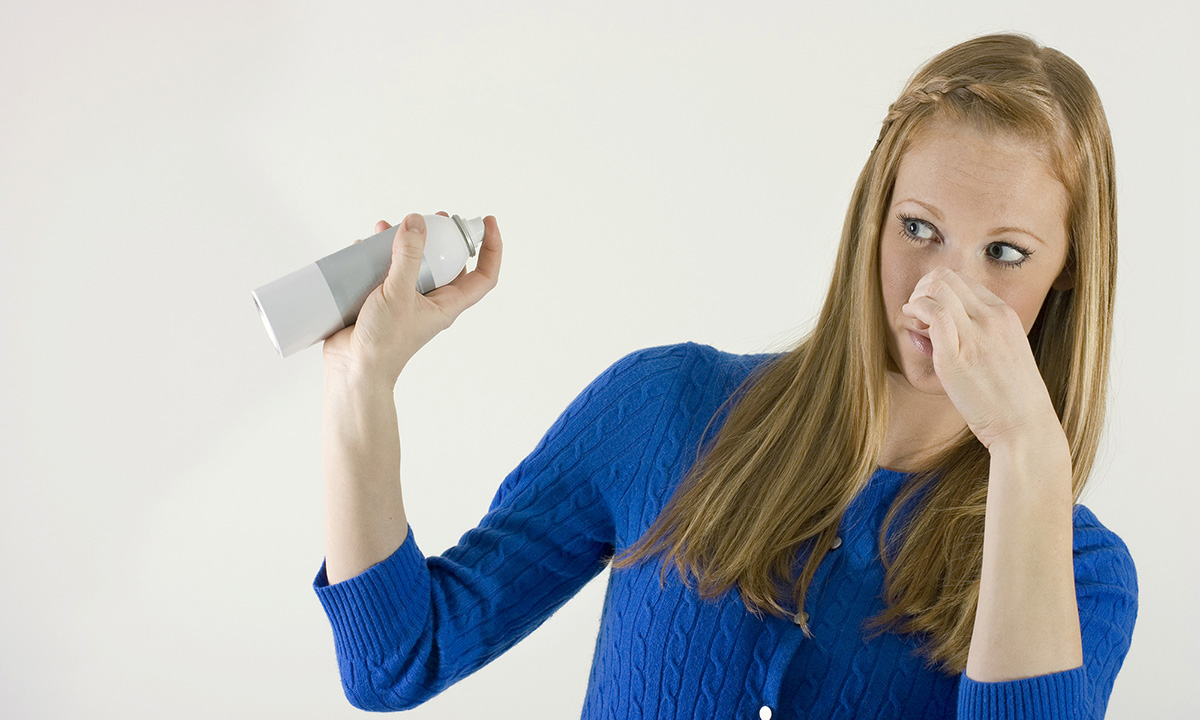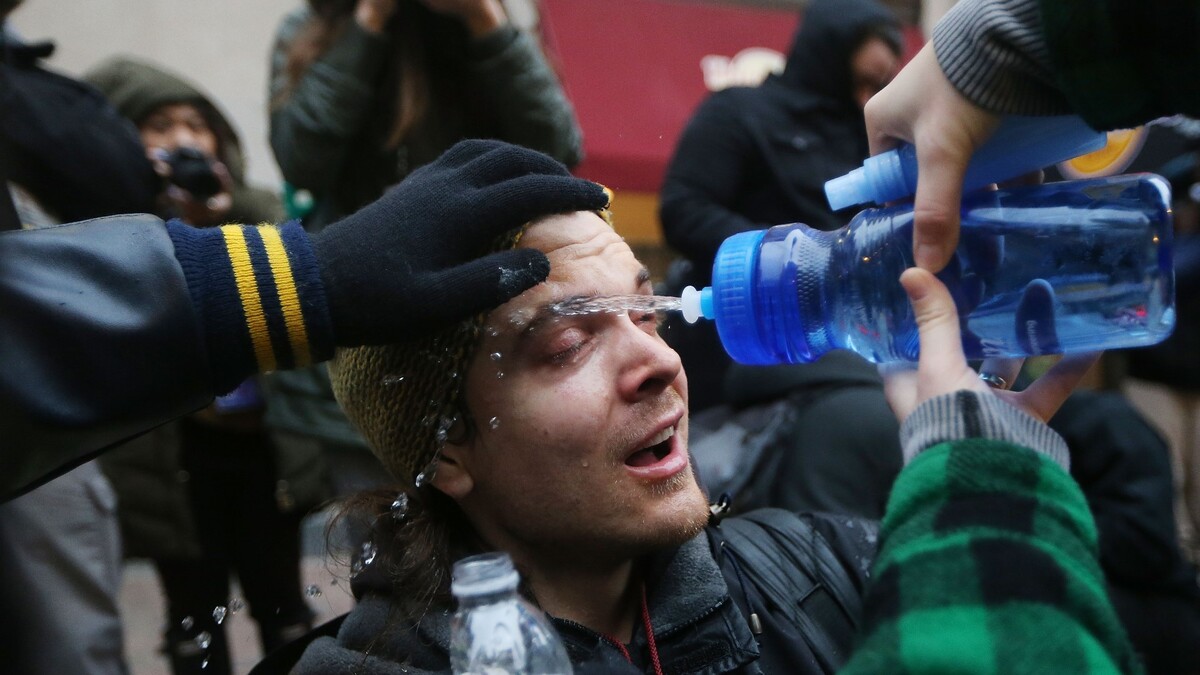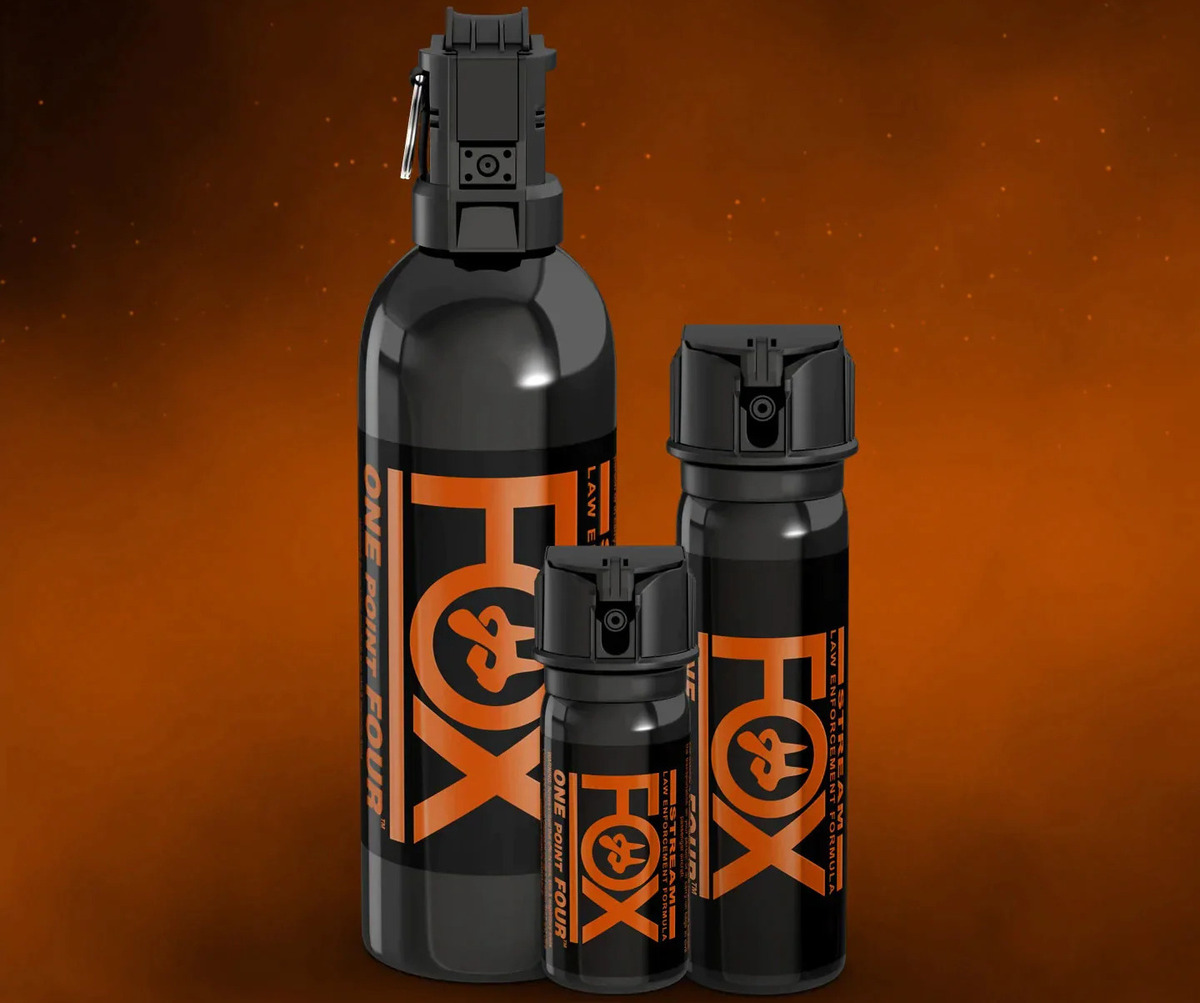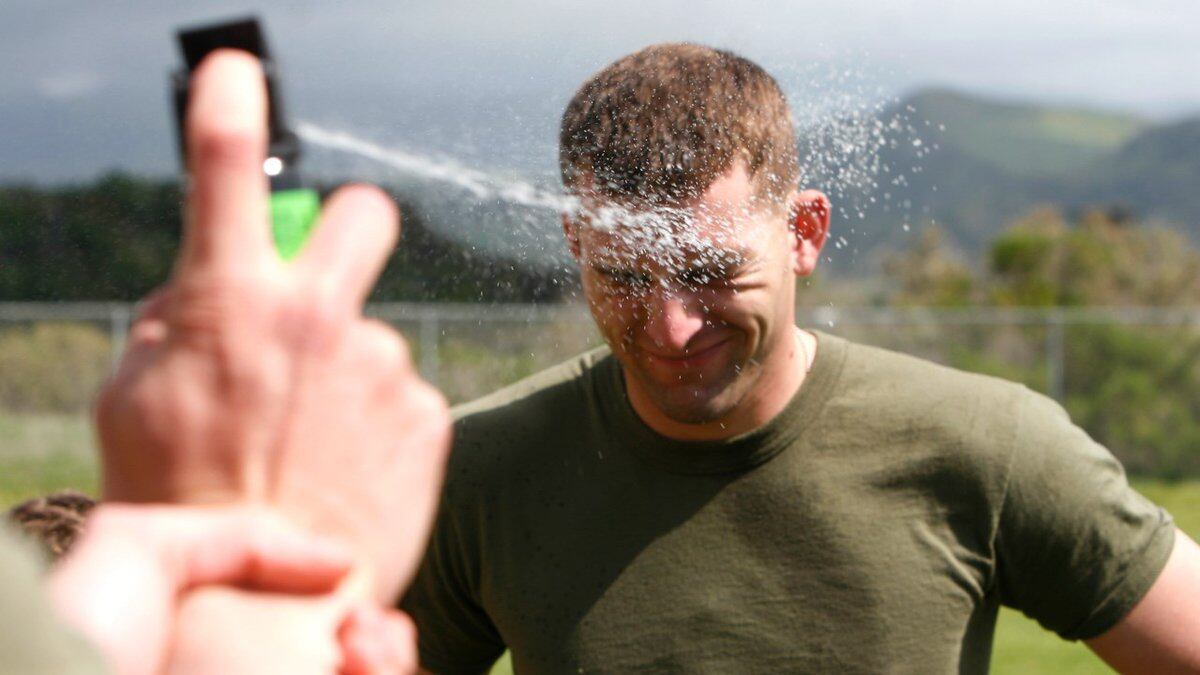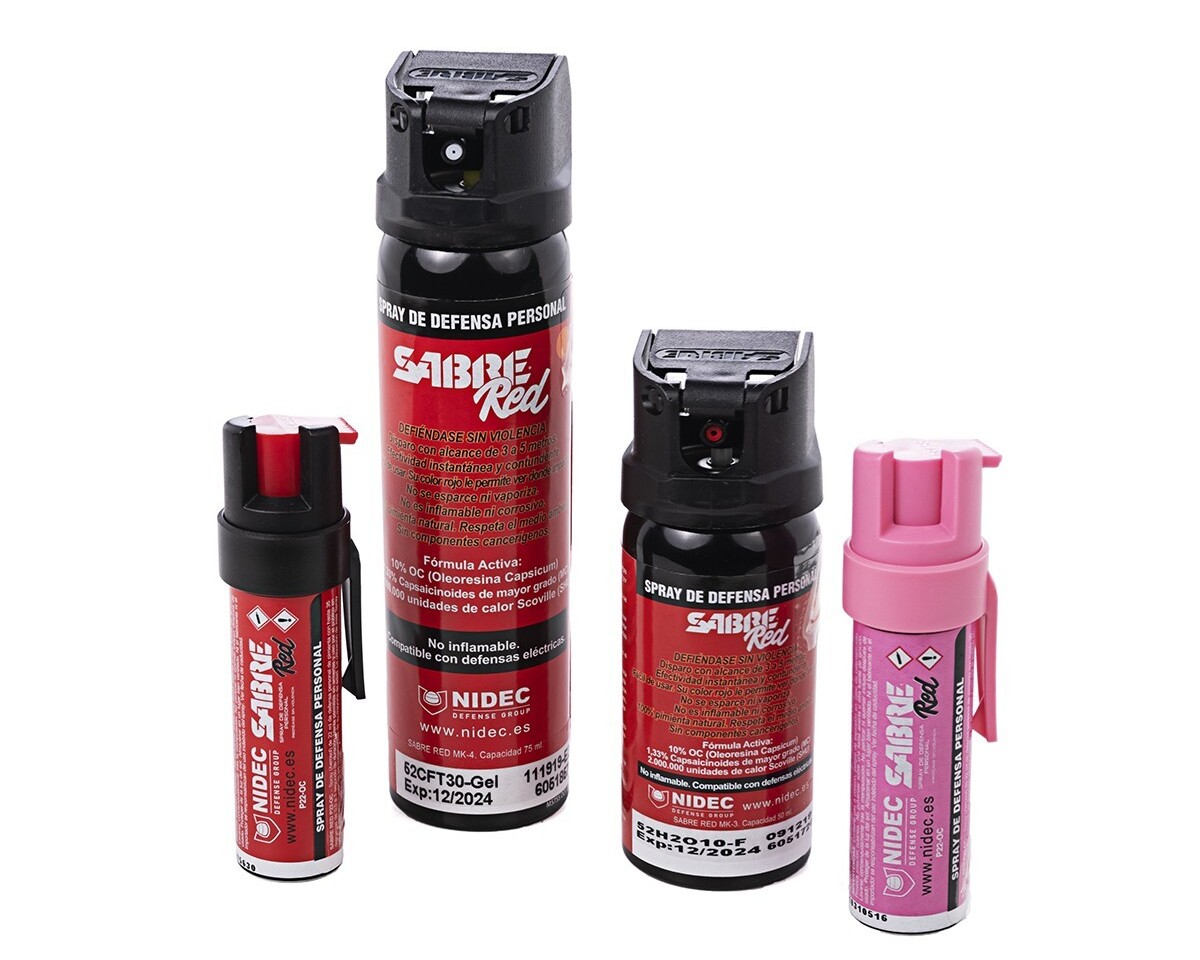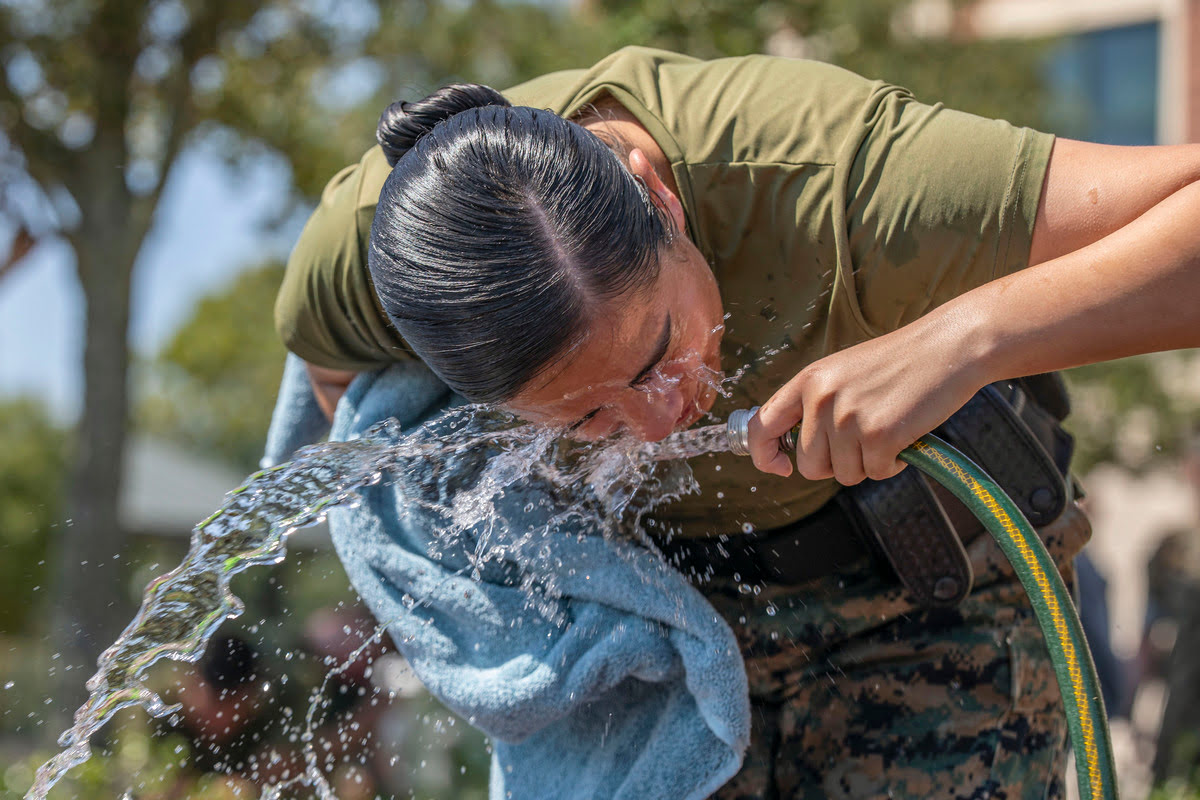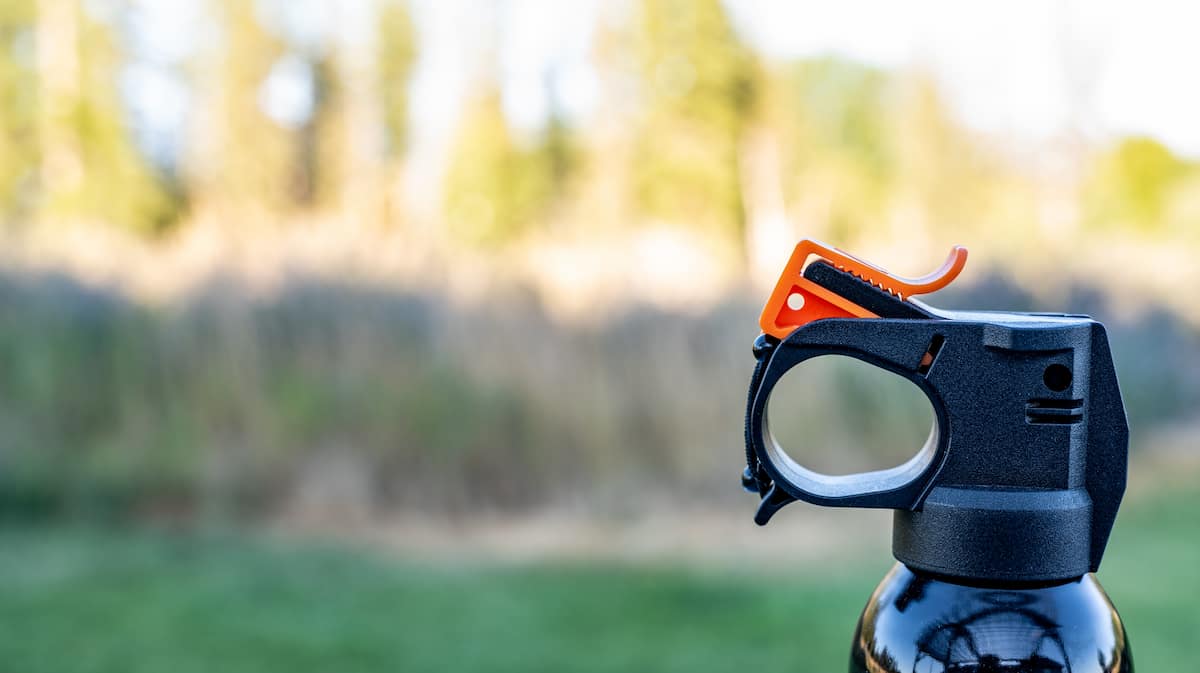Home>Home Security and Surveillance>What Happens If You Get Pepper Spray On Your Skin


Home Security and Surveillance
What Happens If You Get Pepper Spray On Your Skin
Modified: March 6, 2024
Discover what happens and how to handle it if pepper spray comes into contact with your skin. Get tips on home security and surveillance to stay safe.
(Many of the links in this article redirect to a specific reviewed product. Your purchase of these products through affiliate links helps to generate commission for Storables.com, at no extra cost. Learn more)
Introduction
Welcome to the world of home security and surveillance, where protecting your loved ones and property is of utmost importance. In today’s fast-paced society, ensuring the safety of your home has become increasingly vital. One highly effective tool in this realm is pepper spray, widely recognized for its ability to incapacitate potential attackers.
Pepper spray, also known as OC spray (oleoresin capsicum), is a non-lethal self-defense option that provides individuals with a means to defend themselves against potential threats. It contains a powerful substance called capsaicin, derived from chili peppers, which causes intense irritation and incapacitates individuals upon direct contact.
In this article, we will delve into the effects of pepper spray on the skin and what happens if you accidentally get pepper spray on your skin. We will also discuss the immediate reactions, long-term effects, first aid measures, and post-exposure care you should take.
Understanding the impact of pepper spray on the skin is crucial, as it allows you to be prepared and take the necessary steps to minimize its effects. Whether you are a homeowner, renter, or simply someone concerned about personal safety, knowledge about pepper spray and its implications can significantly contribute to your overall security.
So, without further ado, let’s explore the fascinating world of pepper spray and delve into what happens if you get it on your skin.
Key Takeaways:
- Getting pepper spray on your skin can cause intense burning, redness, and temporary vision impairment. Immediate relief involves rinsing with cool water and seeking medical attention if symptoms are severe or prolonged.
- After pepper spray exposure, practice post-exposure care by keeping the affected area clean, applying soothing agents, and protecting the skin from the sun. Seek medical attention if symptoms worsen or if there are pre-existing health conditions.
Read more: How Do You Get Pepper Spray Off Your Skin
Understanding Pepper Spray
Pepper spray is a non-lethal self-defense tool used worldwide to deter potential attackers. It is commonly carried by law enforcement officers, homeowners, and individuals seeking personal protection. Understanding how pepper spray works is essential in comprehending the potential impact it can have on the skin.
The foundation of pepper spray’s effectiveness lies in the active ingredient it contains: capsaicin. It is derived from chili peppers and is responsible for the intense heat and irritation experienced when exposed to pepper spray. Capsaicin interacts with the sensory receptors in the skin, triggering a series of physiological responses.
When pepper spray comes into contact with the skin, capsaicin binds to pain receptors, particularly those associated with the eyes, nose, and throat. This binding induces an immediate inflammatory response, causing the affected area to become irritated, burn, and, in some cases, blister.
It is important to note that pepper sprays come in various formulations, each with different concentration strengths. The strength of a pepper spray is measured in Scoville Heat Units (SHU). The higher the SHU value, the more potent and intense the spray. It is crucial to choose a pepper spray that suits your needs while considering factors such as legality, purpose of use, and potential impact on the skin.
Pepper spray is primarily used for self-defense purposes. Its effects are temporary, providing individuals with ample time to escape a dangerous situation, seek help, or otherwise ensure their safety. Pepper spray not only causes physical discomfort but also affects the attacker’s ability to see clearly, making it difficult for them to pursue their intended target.
Furthermore, it is worth mentioning that pepper spray is known for its efficacy against humans and animals alike. It is commonly used by postal workers, joggers, animal control officers, and individuals who spend time in areas prone to wildlife encounters. Understanding the mechanisms of pepper spray and its effects on the skin allows for informed decision-making when it comes to personal safety.
Now that we have established a foundation in understanding pepper spray, let us explore the effects it can have on the skin in greater detail.
Effects of Pepper Spray on the Skin
When pepper spray comes into contact with the skin, it can cause a range of immediate and long-term effects. Understanding these effects is crucial for knowing how to handle pepper spray exposure and mitigate any potential harm.
Immediate Reactions:
Upon contact, pepper spray causes an intense burning sensation on the skin. Eyes may begin to water profusely, and the nose may start to run. The skin in direct contact with the spray may become red, inflamed, and extremely painful. It is not uncommon for individuals to experience a sensation of heat or being on fire.
Additionally, pepper spray exposure can lead to temporary vision impairment. The eyes may swell, resulting in blurred vision or even temporary blindness. Breathing difficulties, coughing, and choking may also occur if the spray is inhaled, making it essential to avoid inhaling the spray as much as possible.
Long-term Effects:
In most cases, the effects of pepper spray on the skin are temporary and subside within a few hours. However, some individuals may experience lingering effects, especially if they have sensitive skin or pre-existing skin conditions.
Long-term effects include skin irritation, redness, and peeling. In severe cases, blistering may occur, but this is rare. The skin may also feel tender and sensitive to touch. It is essential to keep the affected area clean and avoid scratching or further aggravating the skin.
Psychological Impact:
In addition to the physical effects, pepper spray exposure can have a psychological impact. The fear and distress caused by the intense burning and temporary impairment of vision can be highly unsettling. It is not uncommon for individuals to experience anxiety or flashbacks to the incident, which may require emotional support and counseling.
Factors Affecting the Severity of Effects:
The severity of the effects on the skin can vary based on several factors, including the concentration of capsaicin in the spray, duration of exposure, individual sensitivity, and overall health of the skin. It is worth noting that pepper spray should never be used as a means to cause harm or intentionally inflict pain on others, as it can cause severe distress and potential long-term harm.
Now that we have explored the effects of pepper spray on the skin, let us move on to understanding the appropriate first aid measures you should take in case of exposure.
Immediate Reactions
When exposed to pepper spray, the immediate reactions can be quite intense and unpleasant. It is important to understand these reactions to properly handle the situation and provide immediate relief.
Burning Sensation:
One of the immediate reactions to pepper spray on the skin is a severe burning sensation. The capsaicin in the spray activates pain receptors, causing intense discomfort. The affected area may feel like it is on fire, and the burning sensation can spread rapidly.
Tearing and Irritation of the Eyes:
Pepper spray causes excessive tearing, leading to watery eyes. The eyes become irritated and may feel as though there is something foreign inside them. It is vital to avoid rubbing the eyes, as this can further exacerbate the effects.
Difficulty Breathing and Coughing:
If pepper spray is inhaled, individuals may experience difficulty breathing and coughing. This can be quite distressing, but it is crucial to remain calm and try to breathe through the mouth. If possible, move to an open area with fresh air to aid in breathing.
Swelling and Redness:
The skin in direct contact with the pepper spray may become swollen and red. This is a natural reaction to the inflammatory response triggered by capsaicin. The affected area may appear inflamed and feel tender to the touch.
Temporary Impairment of Vision:
One of the most significant immediate reactions to pepper spray is the temporary impairment of vision. The eyes become swollen and may experience blurred vision or even temporary blindness. It is important to avoid touching or rubbing the eyes, as this can worsen the situation.
Disorientation and Panic:
Due to the intense burning, temporary vision impairment, and overall discomfort, individuals exposed to pepper spray may experience disorientation and panic. It is crucial to remain as calm as possible and focus on removing oneself from the source of exposure.
Immediate Relief Measures:
If you find yourself exposed to pepper spray, it is important to take immediate action to alleviate the discomfort and minimize the impact. Here are some steps you can take:
- Move to an open area with fresh air to help alleviate respiratory symptoms.
- Keep your eyes wide open to promote tear production and flush out the pepper spray.
- Rinse the affected skin with cool water to help neutralize the capsaicin and alleviate the burning sensation.
- Avoid touching or rubbing the affected area to prevent further irritation and potential spread of the pepper spray.
- Remove and wash any clothing or accessories that may have come into contact with the pepper spray.
Seeking medical attention:
If the immediate reactions to pepper spray exposure are severe or if you have any underlying health conditions that may make the effects worse, it is important to seek medical attention. A healthcare professional can assess your condition and provide suitable treatment to alleviate the symptoms.
Now that we have covered the immediate reactions to pepper spray, let us move on to the long-term effects and how to address them.
Long-term Effects
While the immediate reactions to pepper spray exposure are usually the most intense and noticeable, there can be some long-term effects on the skin as well. Understanding these effects allows for proper care and management after exposure.
Skin Irritation and Redness:
After being exposed to pepper spray, it is common to experience skin irritation and redness. The affected area may remain inflamed and appear red for a period of time. The severity and duration of the redness will vary depending on individual sensitivity and the strength of the pepper spray.
Peeling and Dryness:
In some cases, the skin may begin to peel and become dry after pepper spray exposure. This is a natural part of the healing process as the body works to repair the damaged skin. It is important to keep the affected area moisturized to prevent excessive dryness and discomfort.
Tenderness and Sensitivity:
The skin that has been exposed to pepper spray may remain tender and sensitive to touch for some time. It is important to avoid aggravating the area and to handle it gently. You may find that using mild, soothing skincare products can help alleviate any discomfort.
Blistering (Rare):
In rare cases, pepper spray exposure can lead to blistering of the skin. This is more likely to occur in individuals with sensitive skin or those who are exposed to high concentrations of pepper spray. If blisters form, it is important to keep them clean and avoid popping them to prevent infection.
Post-Inflammatory Hyperpigmentation (PIH):
Post-inflammatory hyperpigmentation, or PIH, is a condition where the affected skin becomes darker in color after inflammation or injury. In some cases, pepper spray exposure may result in PIH, leading to patches of darkened skin. This is typically temporary and will gradually fade over time.
Scar Formation (Rare):
While rare, some individuals may experience scar formation after pepper spray exposure. This is more likely to occur if the skin has been severely burned or blistered. If scarring does occur, it is important to consult with a dermatologist for appropriate scar management and treatment options.
Post-exposure care:
To minimize the long-term effects of pepper spray exposure, it is essential to follow proper post-exposure care. Here are some steps you can take:
- Cleanse the affected area gently with mild soap and cool water to remove any residue.
- Apply a soothing, moisturizing cream or gel to alleviate dryness and discomfort.
- Avoid picking at any blisters or peeling skin to prevent infection.
- Avoid exposing the affected area to harsh chemicals or excessive heat.
- Protect the skin from sun exposure by using a broad-spectrum sunscreen with a high SPF.
It is important to note that the long-term effects of pepper spray exposure are usually temporary and will gradually subside with proper care and time. However, if you have any concerns or the effects worsen, it is advisable to consult with a healthcare professional or dermatologist for further evaluation.
Now that we have covered the long-term effects of pepper spray exposure, let’s move on to discussing the appropriate first aid measures to take after exposure.
If you get pepper spray on your skin, immediately rinse the affected area with cold water and soap to help reduce the burning sensation. Avoid rubbing the area, as it can spread the pepper spray.
Read more: What Happens If You Inhale Pepper Spray
First Aid for Pepper Spray Exposure
If you find yourself exposed to pepper spray, it is important to follow the appropriate first aid measures to alleviate the discomfort and minimize the impact. Here are the steps you can take:
1. Move away from the source: Quickly move away from the area where the pepper spray was discharged to avoid further exposure and potential reactivation of the spray.
2. Seek fresh air: Get to an open area with fresh air to help alleviate respiratory symptoms. Breathe slowly through your mouth to avoid inhaling the pepper spray residue.
3. Keep your eyes open: Although it may be challenging, try to keep your eyes open to promote tear production and flush out the pepper spray. Blinking frequently can help stimulate tears.
4. Rinse the affected area: Use cool running water to rinse the affected skin thoroughly. Avoid using hot water, as this can exacerbate the burning sensation. This step helps to remove any remaining residue and neutralize the capsaicin.
5. Use a mild cleanser: If available, use a mild, non-abrasive soap or cleanser to gently wash the affected area. Be cautious not to rub the skin vigorously, as this can further irritate the skin.
6. Avoid touching or rubbing: Refrain from touching or rubbing the affected area, as this can transfer the pepper spray to other parts of your body and worsen the irritation. Use a clean towel or cloth to pat the skin dry instead.
7. Use a cool compress: Apply a cool compress or wet cloth to the affected area to help soothe the burning sensation and reduce inflammation. Make sure the compress is clean to prevent any infection.
8. Avoid applying creams or lotions: While it may be tempting to apply creams or lotions immediately, it is best to wait until the skin has had time to calm down. If needed, consult a healthcare professional or dermatologist for recommended products.
9. Remove contaminated clothing: If your clothing or accessories have come into contact with pepper spray, remove them as soon as possible to prevent further contact and contamination. Wash them separately using detergent to remove any residue.
10. Seek medical advice if necessary: If you experience severe symptoms, such as difficulty breathing, intense pain, persistent redness, or blistering, seek medical attention immediately. A healthcare professional can provide appropriate treatment and advice based on the severity of your situation.
Remember, these first aid measures are intended to provide immediate relief and minimize the impact of pepper spray exposure. However, if you have any concerns or the symptoms worsen, it is advisable to consult with a healthcare professional for further evaluation and guidance.
Now that we have covered the first aid measures for pepper spray exposure, let’s move on to discussing the proper methods for removing pepper spray from the skin.
Removing Pepper Spray from the Skin
When it comes to removing pepper spray from the skin, it is important to act swiftly and effectively to minimize the effects of the irritant. Here are the steps you can take to remove pepper spray from the skin:
1. Stay calm: First and foremost, remain calm. Panicking or rushing can increase the chances of spreading the pepper spray to other areas of the skin.
2. Avoid rubbing: Refrain from rubbing the affected area, as this can further distribute the capsaicin and intensify the burning sensation. Instead, approach the removal process with a gentle touch.
3. Flush with cool water: Use a steady stream of cool running water to flush the affected area. Tilt your head or affected body part to the side to prevent the pepper spray from spreading across your face or body.
4. Flush for at least 15-20 minutes: Continue flushing the area for at least 15-20 minutes or until the burning sensation subsides. This helps to dilute and remove the capsaicin from the skin.
5. Use a mild cleanser: After flushing with water, gently cleanse the affected area with a mild, non-abrasive cleanser. This helps to remove any remaining pepper spray residue.
6. Pat dry: Gently pat the skin dry with a clean towel or cloth. Avoid rubbing the skin, as this can cause further irritation.
7. Avoid harsh chemicals: Refrain from using harsh chemicals, alcohol-based products, or strong soaps on the affected area. These can exacerbate the irritation and dry out the skin.
8. Apply a soothing agent: After drying the skin, apply a soothing agent such as aloe vera gel or a mild, fragrance-free moisturizer to help calm the skin and provide relief.
9. Avoid touching your face: Be cautious not to touch your face or other sensitive areas after handling pepper spray, as it may still be present on your hands. Wash your hands thoroughly with soap and water to remove any residue.
10. Wash clothing and belongings: If your clothing, accessories, or any other belongings have come into contact with pepper spray, wash them separately to remove any traces of the irritant. Use detergent and follow the care instructions on the items.
By following these steps, you can effectively remove pepper spray from the skin and minimize the effects of the irritant. However, if you continue to experience severe symptoms or if the irritation persists, it is important to seek medical attention for further evaluation and treatment.
Now that we have discussed the process of removing pepper spray from the skin, let’s move on to the next section and explore when it is necessary to seek medical attention after exposure.
Seeking Medical Attention
While most cases of pepper spray exposure can be managed with proper first aid measures, there are certain situations where seeking medical attention is necessary. Here are some instances when it is advisable to seek medical help:
Severe symptoms: If you experience severe symptoms, such as difficulty breathing, intense pain, persistent redness, or blistering, it is important to seek medical attention immediately. These symptoms may indicate a more severe reaction that requires professional evaluation and treatment.
Prolonged or worsening symptoms: If your symptoms persist for an extended period of time or worsen despite the application of first aid measures, it is advisable to consult with a healthcare professional. They can assess your condition and provide appropriate guidance and treatment.
Pre-existing health conditions: If you have pre-existing health conditions, such as asthma, allergies, or respiratory disorders, pepper spray exposure may exacerbate these conditions. Consulting with a healthcare professional will help ensure that any potential complications are properly addressed.
Eye exposure: If pepper spray comes into contact with your eyes and you are experiencing severe eye pain, blurred vision, or prolonged vision impairment, it is important to seek immediate medical attention. An eye care professional can assess the extent of the damage and provide appropriate treatment.
Special circumstances: Certain individuals, such as children, pregnant women, and individuals with compromised immune systems, may require additional medical attention after pepper spray exposure. It is important to consult with a healthcare professional to ensure proper care and management.
Psychological distress: Pepper spray exposure can cause significant psychological distress, including anxiety, panic attacks, and flashbacks. If you are experiencing severe emotional distress after the incident, seeking the help of a mental health professional can provide the necessary support and coping mechanisms.
It is essential to remember that seeking medical attention should never be delayed if you feel your symptoms warrant it. A healthcare professional can evaluate your condition, offer appropriate treatment, and help ensure your overall well-being.
Now that we have covered when to seek medical attention, let’s move on to the post-exposure care and precautions you should take to promote healing and prevent further complications.
Post-Exposure Care and Precautions
After being exposed to pepper spray, it is important to take certain post-exposure care and precautions to promote healing and prevent further complications. Here are some key steps you can take:
1. Keep the affected area clean: Cleanse the affected area gently with mild soap and cool water to remove any residue. Avoid scrubbing or rubbing the skin vigorously, as this can further irritate the area.
2. Apply a soothing agent: After cleaning the area, apply a soothing agent such as aloe vera gel or a mild, fragrance-free moisturizer. This can help alleviate dryness, reduce inflammation, and provide relief to the irritated skin.
3. Avoid further irritation: Be mindful of activities or products that may further irritate the skin. Avoid using harsh chemicals, exfoliants, or abrasive scrubs on the affected area to prevent additional inflammation.
4. Protect the skin from the sun: Use a broad-spectrum sunscreen with a high SPF to protect the exposed skin from harmful UV rays. This is particularly important if the affected area is still healing, as sun exposure can exacerbate the hyperpigmentation and prolong the recovery process.
5. Keep the area moisturized: Apply a moisturizer or emollient to the affected area regularly to keep the skin hydrated and prevent excessive dryness. Look for products that are fragrance-free and gentle to avoid further irritation.
6. Avoid scratching or picking at the skin: It’s important to resist the urge to scratch or pick at any peeling or blistering skin. This can delay the healing process and increase the risk of infection. Instead, allow the skin to heal naturally.
7. Monitor for signs of infection: Keep a close eye on the affected area for any signs of infection, such as increased redness, warmth, swelling, or pus. If you notice any of these symptoms, seek medical attention promptly.
8. Take care of your overall well-being: Pepper spray exposure can be an emotionally distressing experience. Take time to engage in self-care activities, practice relaxation techniques, and seek support from friends, family, or mental health professionals if needed.
9. Learn from the experience: Reflect on the incident and use it as an opportunity to enhance your personal safety knowledge and preparedness. Consider taking self-defense classes, researching personal safety devices, or evaluating your home security measures.
By following these post-exposure care and precautions, you can help facilitate the healing process and reduce the risk of further complications. However, if you have any concerns or the symptoms persist or worsen, it is always advisable to consult with a healthcare professional for proper evaluation and guidance.
Now that we have covered the post-exposure care and precautions, let’s conclude our exploration of what happens if you get pepper spray on your skin.
Read more: What Happens If You Pepper Spray A Raccoon
Conclusion
Pepper spray is a widely used non-lethal self-defense tool that can temporarily incapacitate potential attackers. While it is an effective means of personal protection, it is essential to understand the effects of pepper spray on the skin and how to handle exposure.
Upon contact, pepper spray can cause immediate reactions such as intense burning, tearing, and vision impairment. These effects are typically temporary and subside within a few hours. However, some individuals may experience lingering effects such as skin irritation, redness, and peeling.
When exposed to pepper spray, it is crucial to take immediate action. Flush the affected area with cool water, avoid rubbing the skin, and use mild cleansers to remove any residue. Applying soothing agents like aloe vera gel can help alleviate discomfort and promote healing.
While most cases of pepper spray exposure can be managed with proper first aid measures, there are situations where seeking medical attention is necessary. This includes severe symptoms, prolonged or worsening effects, eye exposure, pre-existing health conditions, or psychological distress.
After pepper spray exposure, it is important to practice post-exposure care and precautions. Keep the affected area clean, apply moisturizers, protect the skin from the sun, and avoid further irritation. Monitor for signs of infection, take care of your overall well-being, and reflect on the incident to enhance personal safety awareness.
Remember, pepper spray should be used responsibly and only as a means of self-defense. It is essential to familiarize yourself with your local laws regarding its use and to choose a pepper spray product that suits your needs and adheres to legal regulations.
In conclusion, being aware of the effects of pepper spray on the skin and how to handle exposure are key factors in ensuring personal safety. By understanding the immediate and long-term effects, practicing proper first aid measures, and seeking medical attention when necessary, you can minimize the impact of pepper spray exposure and protect your well-being.
Frequently Asked Questions about What Happens If You Get Pepper Spray On Your Skin
Was this page helpful?
At Storables.com, we guarantee accurate and reliable information. Our content, validated by Expert Board Contributors, is crafted following stringent Editorial Policies. We're committed to providing you with well-researched, expert-backed insights for all your informational needs.
